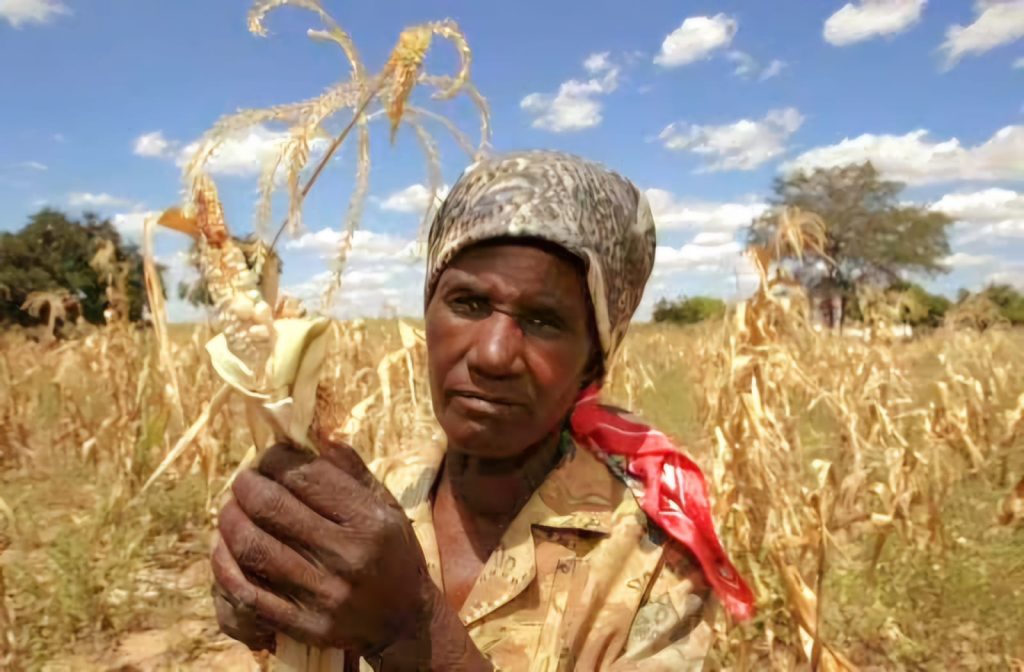Zimbabwe is facing a profound humanitarian crisis, driven largely by El Niño-induced droughts that have ravaged the country’s agricultural sector. Peter Gift Mutasa, Chairperson of the Crisis in Zimbabwe Coalition and a prominent political commentator, shared critical insights on the worsening situation.
According to Mutasa, the El Niño phenomenon has brought about severe storms and prolonged dry spells, which have decimated more than half of Zimbabwe’s harvest. This disaster has plunged approximately 7.6 million Zimbabweans into a state of acute hunger. Mutasa elaborated that the food insecurity crisis is expected to intensify between January and March, with projections indicating that up to 7.7 million people could be affected. Of particular concern is that around 9 million individuals, equating to roughly 16% of the population, are anticipated to face extreme food shortages during this critical period.
The drought has also led to severe water shortages across the country. Many communities are struggling to access clean and sufficient water, which is exacerbating the overall crisis. Mutasa forecasted significant displacement as individuals and families relocate in search of food and water. This internal migration is expected to put additional pressure on neighboring countries and could contribute to an increase in illegal immigration as people cross borders in search of better living conditions.
In response to the escalating crisis, international bodies such as the United Nations and the World Food Programme have called for increased global support. While the Zimbabwean government has requested considerable humanitarian aid, there is considerable debate over the exact amount needed. Mutasa emphasized the importance of transparent aid distribution to prevent corruption and ensure that assistance reaches the most vulnerable populations. He expressed concern that mismanagement or corruption could undermine the effectiveness of the aid, stressing the need for a wide range of NGOs to be involved in the distribution process.
Mutasa also raised concerns about the potential impact of taking on significant loans to address the crisis. He cautioned that relying on loans could exacerbate Zimbabwe’s existing debt problems and lead to long-term financial challenges. Instead, he advocated for immediate humanitarian assistance without adding to the country’s debt burden. Effective resource management and a focus on addressing corruption and resource leakages are essential to navigate the crisis, according to Mutasa.
This crisis highlights a dramatic shift for Zimbabwe, once known as Africa’s breadbasket, now heavily reliant on international aid. The situation underscores the urgent need for global support and effective management of resources to address this severe humanitarian emergency and support Zimbabwe’s recovery and resilience in the face of ongoing challenges.

